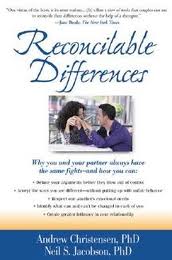Brain Power
Placebo Outperforms Drug in Oxford Study (PsychCentral):
Positive expectations of a treatment may be more powerful than the drug itself when it comes to getting well. According to a brain imaging study at Oxford University, volunteers who believed their medication would help actually doubled the natural physiological or biochemical effects of an opioid drug. On the other hand, it was found that negative expectations could actually override the effects of the powerful pain-relieving drug.
Take a Walk, Grow Your Brain
NPR Science Friday: Growing A Bigger Brain Is A Walk In The Park
A new study in the Proceedings of the National Academy of Sciences shows that adults who walked for 40 minutes three times a week for a year had brain growth in the hippocampus — an area of the brain associated with spatial memory. Study author Arthur Kramer and psychologist Margaret Gatz discuss their research.
Electric Muse
Inspiration from Brain Stimulation? (PsychCentral):
Are we on the verge of reality transcending science fiction with the use of brain electrodes to enhance individual creativity and expression? Doctoral student Richard Chi and Dr. Allan Snyder from the Centre for the Mind at the University of Sydney seem to think so.
They found that participants who received electrical stimulation of the anterior temporal lobes were three times as likely to reach the fresh insight necessary to solve a difficult, unfamiliar problem than those in the control group.
Also: Brain Pacemaker Holds Promise for Untreatable Depression
The Sadness Network
Slate asks, Is Facebook Making Us Sad?
Facebook is, after all, characterized by the very public curation of one’s assets in the form of friends, photos, biographical data, accomplishments, pithy observations, even the books we say we like. Look, we have baked beautiful cookies. We are playing with a new puppy. We are smiling in pictures (or, if we are moody, we are artfully moody.) Blandness will not do, and with some exceptions, sad stuff doesn’t make the cut, either. The site’s very design—the presence of a “Like” button, without a corresponding “Hate” button—reinforces a kind of upbeat spin doctoring.
Meditation Brain Changes
How Meditation May Change the Brain (NYT):
[S]cientists say that meditators…may be benefiting from changes in their brains. The researchers report that those who meditated for about 30 minutes a day for eight weeks had measurable changes in gray-matter density in parts of the brain associated with memory, sense of self, empathy and stress.
Free Couples Therapy (if you’re 55+)
 Good deals dept.–relayed by Lynn McFarr of the CBT Society of Southern California:
Good deals dept.–relayed by Lynn McFarr of the CBT Society of Southern California:
Free marital therapy for couples over the age of 55
Hello all, We are providing free marital therapy for adults over the age of 55 as part of a research study at UCLA. Couples will receive up to 16 sessions of IBCT, supervised by Andrew Christensen, Ph.D. If you have clients in the Los Angeles area that may benefit from this service, please contact Meghan McGinn at mmcginn@ucla.edu for more information.
What’s IBCT? “Integrative Behavior Couple Therapy.” Explanation here.
Good Vibrations
Positive Vibes Really Do Protect Health (PsychCentral):
An evidence-based review of published literature finds support for the premise that feeling good may be good for your health…“We all age. It is how we age, however, that determines the quality of our lives,” said Anthony Ong, Ph.D., of Cornell University, author of the review article. The data he reviews suggest that positive emotions may be a powerful antidote to stress, pain, and illness.
Journaling for Grief
Helpful tips from Beth S. Patterson (GoodTherapy.org):
I often suggest journal writing to my clients who are grieving the death of a loved one or dealing with a difficult life change as a useful way to deal with and befriend the intense emotions that often accompany these experiences. Some say, “oh, I’m not a good writer.” To that I reply that what is important is the act of expression, not how pretty or correct it is. In fact, the word “express” literally means “push out”, that is, pushing out all of those churning, claustrophobic and chaotic feelings in a way that gives them “breathing room” and makes them workable.
Improving Your Cognitive Toolkit
The question by the Edge Foundation: “What scientific concept would improve everybody’s cognitive toolkit?” 163 answers are here. Here’s a sampling:
– “Cognitive load” from Nicholas Carr: a limitation in how much information entering our consciousness we can process at any instant;
– “The Pareto principle” from Clay Shirky: a reminder that the richest or busiest or most connected participants in a system will account for much more wealth, or activity, or connectedness than average”;
– “Connective intelligence” from Matt Ridley: the idea that human achievement “is entirely a networking phenomenon” and is “based on collective intelligence”.
Social Animal
David Brooks pays tribute to brain science in a big New Yorker piece.
Help comes from the strangest places. We are living in the middle of a revolution in consciousness. Over the past few decades, geneticists, neuroscientists, psychologists, sociologists, economists, and others have made great strides in understanding the inner working of the human mind. Far from being dryly materialistic, their work illuminates the rich underwater world where character is formed and wisdom grows. They are giving us a better grasp of emotions, intuitions, biases, longings, predispositions, character traits, and social bonding, precisely those things about which our culture has least to say. Brain science helps fill the hole left by the atrophy of theology and philosophy.